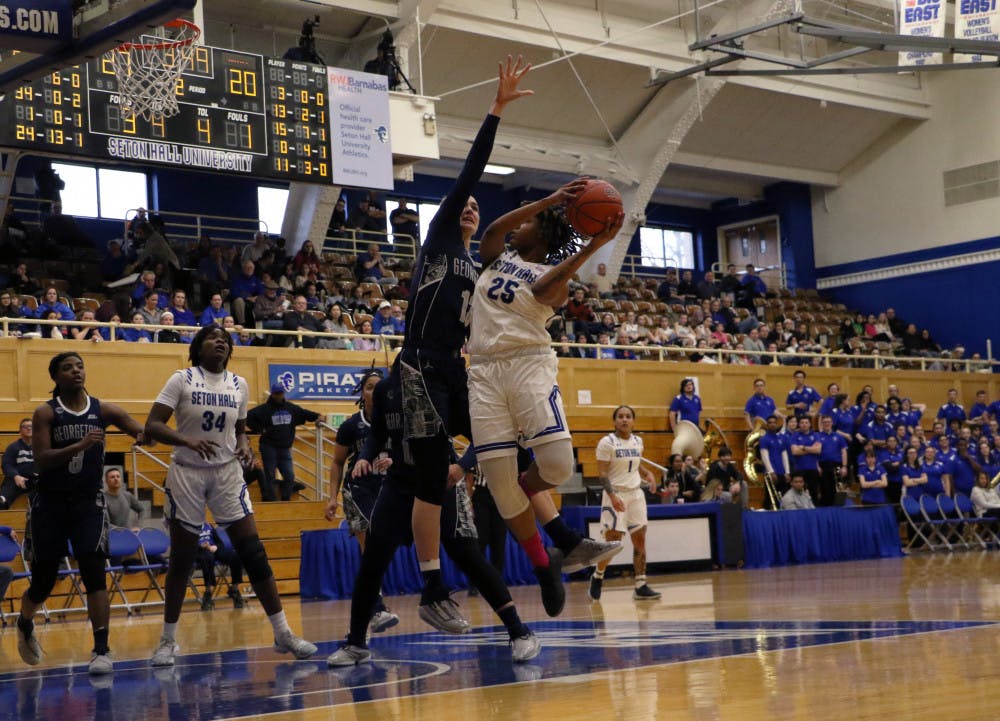The week of April 22 is National Crime Week and to kick it off, John Paitakes, Ph.D. reached out to Project Pride to have four inmates from two local State Correction Prisons come speak to his criminal justice class on Wednesday.
The lecture was located in the Arts and Sciences building and was open to all students who wished to attend.
The two male inmates were from Mountain View Youth Correctional Facility and the two females were from Edna Mahan Correctional Facility.
The director of Project Pride, Michael Ritter, said the program aims to educate people and tries to prevent them from falling into trouble themselves.
"We go out two to three times a week to reduce the prison population," Ritter said.
Paitakes said he has worked with Project Pride before and said the results always turn positive.
"This is a good educational component," Paitakes said. "Students can ask any questions."
Paitakes also said the prisoners who came to speak had to meet certain requirements before coming to the University, in that they had to have a record of good behavior in the prison.
Junior criminal justice majors Ben Prohaska and Alicia Spizzirro said they were nervous at first, because of safety concerns; however they were reassured by the fact that these are low risk prisoners.
"(Paitakes) said that there will be low risk prisoners specifically chosen because of how they act in prison and what kind of jobs they hold in prison," Spizzirro said.
Prohaska and Spizzirro both said that this is a good learning experience for criminal justice majors, although they admitted they were a little scared how it would turn out.
"It's a good way to integrate the criminal justice system into the classroom," Spizzirro said. "(It) gives more of a hands on experience to future criminal justice employees."
The presentation started off with each of the four inmates speaking about how they ended up imprisoned and explaining how much they have changed since being sentenced.
The speakers, Diane, Michael, Chris and Ronnie, all agreed on the fact that they needed to be sentenced.
"I needed this to really wake me up," Michael said.
They said they wanted the audience to know that they are good people who just made some mistakes, and they volunteer to speak to people because they want to prevent others from making the same mistakes.
The inmates were incarcerated for various reasons, such as drug abuse, murder charges, assault and breaking and entering.
"There's nothing I can do to pay people back," Chris said. "By coming here, I'm trying to give something back."
After the presentations were over, students were able to engage in a question and answer with the speakers, which many students participated in and the speakers answered the questions easily.
To end the presentation, Ritter informed students on internships and various opportunities offered to volunteer at these correctional prisons.
Ritter said he looks forward to seeing students volunteering to come help out when they can, especially since they can replace retirees.
Ritter also noted that volunteering would be beneficial for students' resumes, ultimately proving to be a benefit to students in the long run.
"Not only would you be helping out your community, but you're helping yourself," Ritter said.
Lindsay Rittenhouse can be reached at Lindsay.rittenhouse@student.shu.edu.





